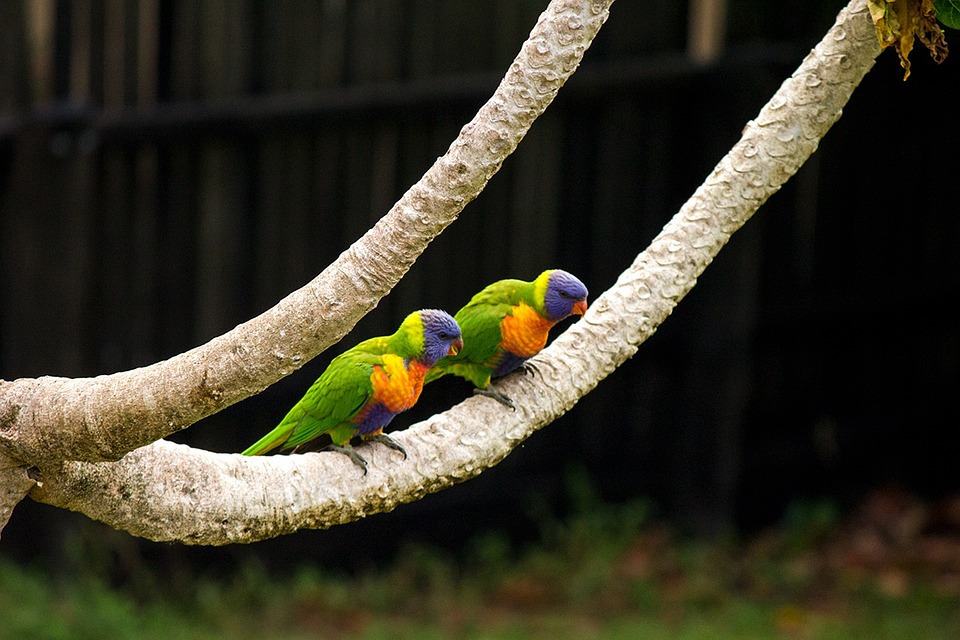Parrots are known for their remarkable intelligence and ability to mimic sounds. One fascinating aspect of their behavior is their response to music. In this article, we will explore the connection between parrots and music, delving into their behavior, responses, and the potential benefits of incorporating music into their environment.
Understanding Parrot Behavior in Relation to Music
Parrots have a natural affinity for sounds, making them particularly receptive to music. Their keen sense of hearing allows them to appreciate and engage with various melodies and rhythms. Additionally, parrots rely heavily on vocalization for communication, making music an intriguing form of auditory stimulation for them.
Parrots have the remarkable ability to recognize and mimic melodies. They can accurately reproduce a wide range of sounds, including songs and musical phrases. This ability to imitate and replicate sounds is a testament to their intelligence and vocal capabilities.
How Parrots Respond to Music
When exposed to music, parrots often display captivation and attention. They may tilt their heads, perk up their feathers, and focus intently on the music. This behavior suggests that they are actively listening and processing the auditory stimulus.
Parrots may also engage in vocalization and sing along with the music. They may mimic the melodies and even attempt to replicate the lyrics of songs. This behavior demonstrates their ability to not only recognize but also reproduce musical elements.
In addition to vocal responses, parrots may exhibit dance-like movements and physical responses to music. They may sway their bodies, bob their heads, or even flap their wings in time with the rhythm. These movements indicate their enjoyment and active participation in the musical experience.
Benefits of Music for Parrots
The incorporation of music into a parrot’s environment can provide numerous benefits for their well-being. Firstly, music offers mental stimulation and enrichment. The complex auditory stimulus of music engages their minds, keeping them mentally active and preventing boredom.
Music also has a calming and stress-reducing effect on parrots. Just as humans find solace in soothing melodies, parrots can experience relaxation and reduced anxiety when exposed to gentle and calming music.
Furthermore, music encourages physical activity and exercise for parrots. The rhythmic nature of music can inspire them to move, dance, and engage in physical play. This promotes a healthy level of physical activity, preventing sedentary behavior and promoting overall fitness.
FAQs (Frequently Asked Questions)
Q1: Can all parrot species respond to music?
A: Yes, most parrot species have the potential to respond to music. However, individual preferences may vary.
Q2: What types of music do parrots enjoy?
A: Parrots have shown a fondness for various genres of music, including classical, pop, and even specific songs. Experimentation with different styles can help determine a parrot’s preferences.
Q3: How can I introduce music to my parrot?
A: Start by playing soft, soothing music at a low volume and observe your parrot’s response. Gradually increase the volume and experiment with different genres to gauge their interest and reaction.
Q4: Can playing music for my parrot improve their behavior?
A: Music can positively impact a parrot’s behavior by providing mental stimulation, reducing stress, and encouraging physical activity. However, it should not be seen as a sole solution for behavioral issues.
Q5: Are there any potential negative effects of playing music for parrots?
A: Loud and excessively stimulating music can be stressful for parrots. It is important to monitor their reactions and ensure the volume and content are appropriate for their well-being.
Q6: Can parrots learn to sing along with songs?
A: Yes, parrots have a remarkable ability to mimic melodies and lyrics. With repetition and training, they can learn to sing along with certain songs.
Q7: Can playing music help with parrot training or teaching new behaviors?
A: Music can be used as a positive reinforcement tool during training sessions. Pairing specific songs with desired behaviors can help reinforce training cues and encourage learning.
Conclusion
The relationship between parrots and music is a fascinating subject that showcases their intelligence and adaptability. By understanding their behavior and responses to music, we can provide them with a stimulating environment that enhances their overall well-being. Remember to observe your parrot’s preferences and reactions, and enjoy the wonderful world of music with your feathered companion.









